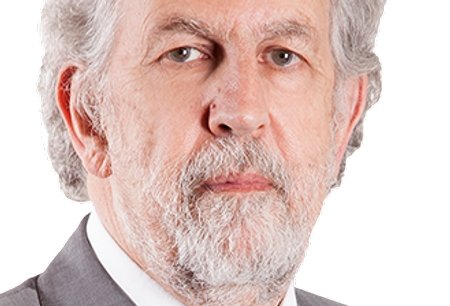Passing the baton

At the end of this year, PLMJ founding partner José Miguel Júdice will leave the firm he founded more than 40 years ago after making an acquaintance in a Portuguese prison cell – here he talks to Iberian Lawyer about his new career as an arbitrator as well as the story behind the rise of PLMJ, Portugal’s biggest law firm
 It’s all change at PLMJ. Portugal’s largest law firm is in the midst of a period of regeneration – in the last five months, not only has the firm moved to new offices in Lisbon’s Avenida Fontes Pereira de Melo, it has also launched a new logo as part of a re-branding exercise that sought to freshen up the firm’s image. The new office and new logo are indeed symbolic of a new era for the firm. However, equally symbolic of the significant changes the firm is undergoing is the imminent departure of one of the firm’s founding partners, José Miguel Júdice.
It’s all change at PLMJ. Portugal’s largest law firm is in the midst of a period of regeneration – in the last five months, not only has the firm moved to new offices in Lisbon’s Avenida Fontes Pereira de Melo, it has also launched a new logo as part of a re-branding exercise that sought to freshen up the firm’s image. The new office and new logo are indeed symbolic of a new era for the firm. However, equally symbolic of the significant changes the firm is undergoing is the imminent departure of one of the firm’s founding partners, José Miguel Júdice.
Without Júdice, there would be no PLMJ. He was one of the creators of the firm back in the 1970s and the story of the birth of PLMJ is a particularly dramatic one. It goes like this: an academic at the Universidade de Coimbra who specialized in politics, sociology and economics, Júdice found himself imprisoned following the Portuguese revolution in 1974. Júdice says he was never charged and he was incarcerated for a total of three months. However, during his time in the cells, he met a fellow prisoner, António Maria Pereira, in doing so making an acquaintance that would dramatically change the course of his life. Upon their release, the two men – together with Luís Sáragga Leal and Francisco de Oliveira Martins – would found PLMJ in 1976.
TOO MUCH WORK
The four lawyers, who worked alongside three trainees soon found themselves inundated with work. “We had too much work,” says Júdice. The partners believed the best strategy for dealing with the increased workload was to expand the size of the law firm, though they were discouraged from pursuing this path. Júdice says: “All our friends were saying why have a big law firm? But we decided growth was best.” And so the firm grew, significantly. By the end of the 1980s, it had around 50 lawyers, and by the end of the 1990s, it had approximately 100 lawyers. Today it is the biggest Portuguese firm by headcount with almost 300 lawyers and annual revenue of €55 million.
WINDS OF DISCONTENT?
It’s a story that certainly paints a picture of a partnership that was united in its support of Júdice. However, like all law firms, PLMJ has also gone through periods of unrest when some partners have been dissatisfied with life at the firm and have opted to leave. For example, back in 2008, a group of partners left the firm to form their own practice, AAA Advogados. Currently, there are rumours that new winds of discontent are blowing through the firm’s corridors. Telles Advogados recently recruited PLMJ tax partner João Magalhães Ramalho, while, in March this year, PLMJ partner, and former head of the firm’s Oporto office, Tomás Pessanha, left the firm to join Garrigues. Meanwhile, other recent departures saw PLMJ’s Pedro Barosa join Abreu Advogados as a partner. If that wasn’t enough, in arguably the biggest lateral move of the year so far in Portugal, PLMJ’s former managing partner Manuel Santos Vitor, as well as the firm’s tax partner Nuno Cunha Barnabé, both quit the firm to join Abreu Advogados in July.
RISKY DECISION
Júdice will officially depart PLMJ at the end of this year to focus on his work as an arbitrator. “I quit the firm’s lockstep on the 1 January this year – I am no longer a partner and I will receive a flat fee for this year,” he explains. When he started out at PLMJ, Júdice was an all-rounder who handled a wide range of matters, including tax, corporate and real estate work, but in 1998 he quit transactional work to focus on dispute resolution. Júdice had the wisdom and foresight to plan for the day his career as a lawyer would come to an end, and so he successfully forged a career in arbitration, a field he describes as the “noble part” of dispute resolution. He established PLMJ Arbitration as a separate unit from the Litigation Unit in 2013 – he acknowledges it was a “risky decision”, but it was a gamble that has paid off. The arbitration unit now has 17 lawyers in Lisbon and an annual turnover of more than €4 million. The unit has won plaudits and Júdice is confident that he will be leaving it in “very good shape”.
The fact Júdice is leaving PLMJ means he will be able to eliminate the conflicts of interest he has faced in the past. “I have lost tens of cases in the past due to conflicts of interest, but now there is no conflict,” he says. “I will be working as a sole practitioner, arbitration is a trend, people prefer arbitration and now I’ll be doing nothing but that.” Júdice, who is a former president of the Portuguese Bar Association, has found himself in demand and currently has four arbitrations scheduled in Latin America. To date, he has acted in more than 50 arbitrations –33 of them as president and three as sole arbitrator. The seats of the arbitrations have been in Brazil, Switzerland, the United Kingdom, Spain, Angola, France, the Netherlands and Portugal, and they have been held in English, Spanish, French and Portuguese, with many of them being bilingual.
To read the article in full please download issue N.87 here












